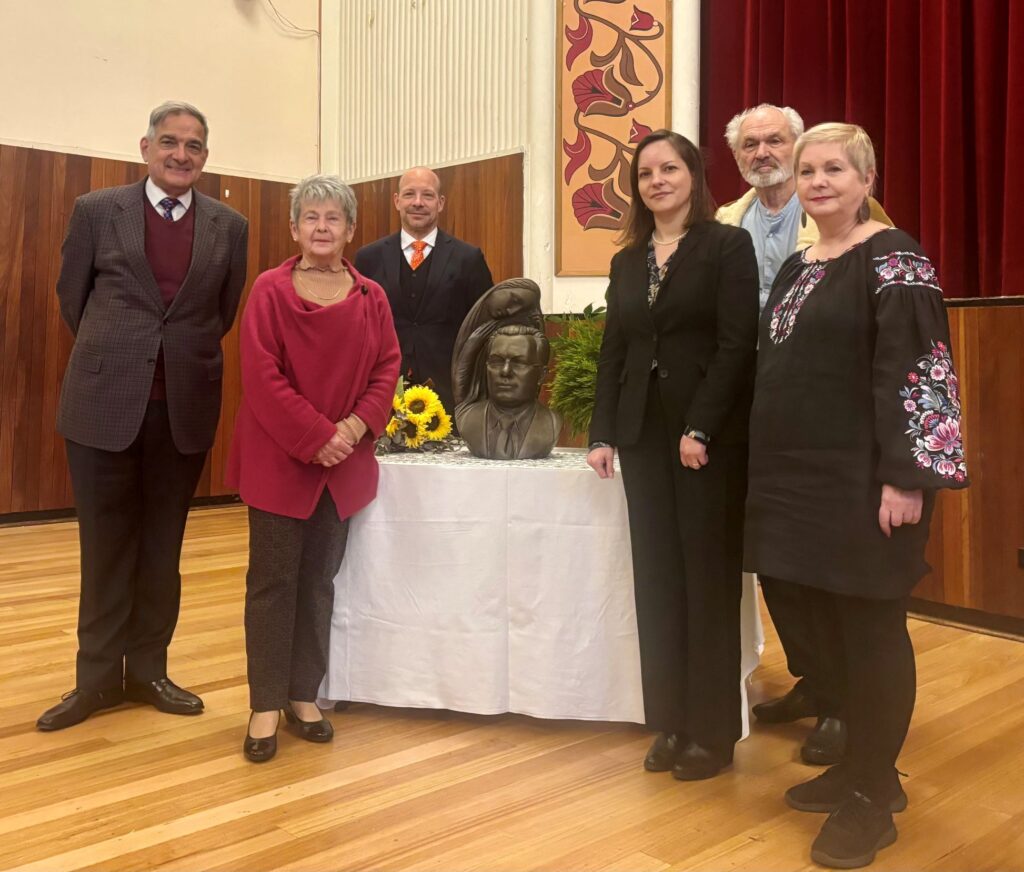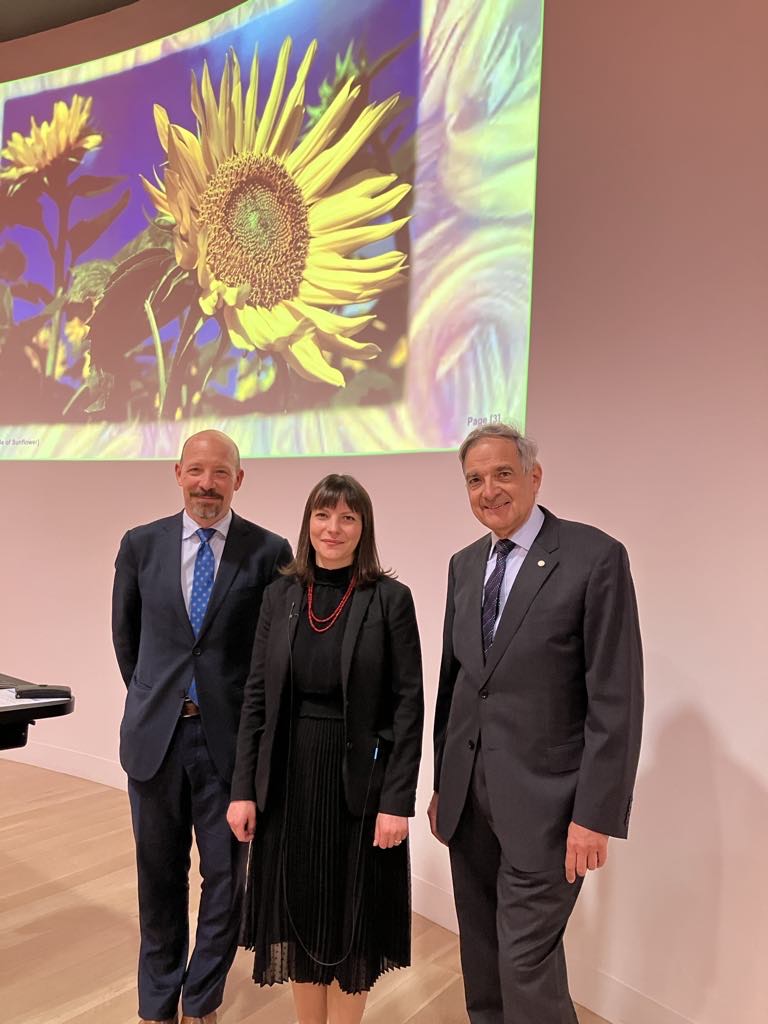Dr Iryna Skubii appointed Mykola Zerov Fellow in Ukrainian Studies at the University of Melbourne
In May 2024 Dr Iryna Skubii took up her appointment as Mykola Zerov Fellow in Ukrainian Studies in the School of Historical and Philosophical Studies at the University of Melbourne. The position is funded under a three-year contract between the Association of Ukrainians in Victoria (AUV) and the University.
Dr Skubii obtained her PhD in History from Queen’s University in Kingston, Ontario (Canada) and holds a Candidate of Science degree in History from V.N. Karazin Kharkiv National University (Ukraine). Her publications focus on Ukraine’s history of trade, consumption, materialities, and human-environmental relationships during the early Soviet period, including the Soviet famines, as well as social and environmental history. She is the author of the book Trade in Kharkiv in the Years of NEP: Economy and Everyday Life (1921-1929).
Since her commencement at Melbourne University, Dr Skubii has continued to publish in academic journals on her main research topic hitherto, the Holodomor and other famines in Soviet Ukraine (including a recent article in the Journal of Contemporary History). In the current year she has also published in Australian public-facing periodicals (The Conversation and Griffith Review). Dr Skubii’s researcher profile, which includes links to some of her recent publications in academic and public media, may be accessed on Melbourne University’s “Find an Expert” page.
Dr Skubii is one of the ninety international and Ukrainian scholars invited to contribute to the “Ukrainian History Global Initiative” (UHGI), a three-year academic project launched in 2024 and led by Professors Timothy Snyder (Yale University), Serhii Plokhy (Harvard University), and Yaroslav Hrytsak (Ukrainian Catholic University). The UHGI involves researchers in the humanities, social sciences and natural sciences and aims to present in a scholarly, yet accessible manner the deep history of the lands of contemporary Ukraine and the peoples who have inhabited them, generating a new model of synthetic public history. Together with Dr Daria Mattingly (University of Chichester) and Dr Artem Kharchenko (I.P. Kotliarevsky Kharkiv National University of Arts), Dr Skubii will work within the “Totalitarianism” section of the UHGI on the social history of the Holodomor, one of the seventy research “capsules” of this project.
In Melbourne Dr Skubii has commenced a number of new research projects. She has applied to the Sydney-based Ukrainian Studies Foundation in Australia for funds to support research into Ukrainian community activism in Australia in defence of national and human rights in the Soviet Union. The project is based, in part, on materials in the AUV Archive.

Dr Skubii received funding from the AUV’s Ukrainian Studies Support Fund (USSF) to research the transmission in Australia of historical memory about Ukraine’s past, especially the Holodomor, from pioneer post-Second World War immigrants to succeeding generations. USSF is able to support this project thanks to a donation by Ms Daria Fedewytsch-Dickson in memory of Roman and Wira Fedewytsch and Thaissa Luczakiwskyi-Venk. The grant will be administered through the University of Melbourne.
These projects involve collaboration between Dr Skubii and AUV Archivist Dr Yana Ostapenko, Dr Olha Shmihelska-Kozuliak and Emeritus Professor Marko Pavlyshyn.
On 15 October 2024 Dr Skubii delivered her inaugural lecture, “The Tale of the Sunflower and Its Travels in Ukraine,” to a large and appreciative audience including many invited guests from the Ukrainian community at an event hosted by the University of Melbourne’s School of Historical and Philosophical Studies. The lecture sketched the outline of a new research project leading to a book on the topic.
In all, in the seven months since her appointment Dr Skubii has had speaking engagements at twenty academic and public events in Australia, Ukraine, Finland and New Zealand. Her presentations have included a talk on the Holodomor in the “History Brown Bag” series at the University of Melbourne, a lecture titled “Place, Land, and Famine: Towards Environmental History of Soviet Famines in Ukraine” at the University of Eastern Finland and, in the context of commemorations of victims of the Holodomor in Melbourne, two addresses Ukrainian community audiences. Dr Skubii also participated in the launch of the Victorian node of the Holodomor Descendants Network.
Dr Skubii has joined the Committee of the Ukrainian Studies Association of Australia and New Zealand.

